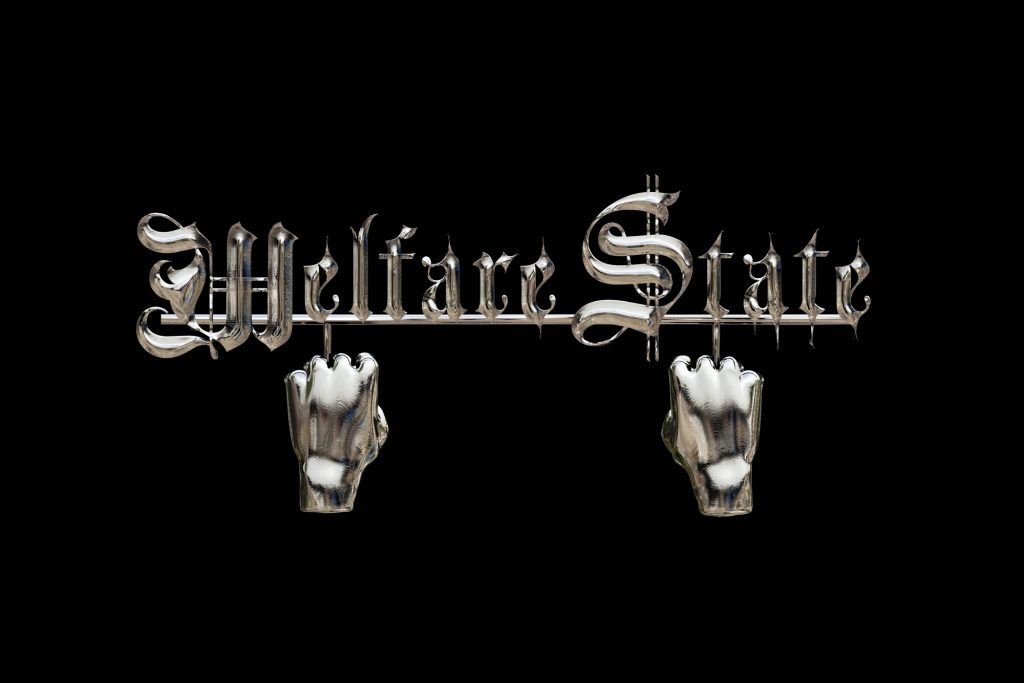
The “Welfare State” project has its provenance in El Salobral, one of Europe’s largest shanty towns located on the southern outskirts of Madrid. In March 2007, the Madrid City Council and the Regional Government decided the town should be demolished and its inhabitants rehoused.
“Welfare State” is a four-channel video installation transmitting the demolition of these slum properties as if it were a sports event. The public watches the process from its seats on the “terraces” and urges on the excavators hooligan style. The project turns the destruction of the neighbourhood into a show for the members of civil society. Unconcerned by considerations like the disappearance of a specific way of life, civil society celebrates the end of the ghetto as if it were a media spectacle.
The aesthetics of “ultra” supporters, the supposed personalisation of consumption by means of customization (tuning or tattoos…) and hip hop or heavy metal music are used here as cultural references for a society that gets a kick out of the spectacle of destruction.
Welfare State
When we think about utopia we imagine that at least some of these aspects have a possibility of happening in the present day. Nowadays, however, “no ghost stalks Europe”. Therefore our vision can only allude to maintain or recover the ruins of a utopia, which was substituted a long time ago in a European context by pragmatism; social democracy for any kind of revolutionary will, the welfare state for the class struggle; in short, comfort has become the main ideology of our time.
Even so, this “diminished utopia” currently threatened by neo-liberal trends, appears to be the brightest of the possible utopias. In spite of its contradictions, of its clientelism and welfarism, a residual work for human rights and for basic dignity is maintained, since in other society models inequality is not only a fact but also a right. The welfare state is based on the principle of equality and aims to achieve an increase in the quality of life of all its citizens. The difference this has in comparison with other liberal models is that these are based on the idea that intervention is a threat against freedom and that public expenditure in social services is a waste of resources.
E. Andersen defines the welfare state as the “state model that takes control of economic and social life to reach social policy and living standard levels. Its participation follows the principles of justice and social equality and political pluralism as inspirers of all procedures”.
The welfare state, however, needs economic prosperity, which is the privilege of developed countries. This disparity generates surpluses that are left outside of social and economic networks (as much outside of as well as inside the territory) which results in an adapted majority, as well as marginalized minorities for which the mechanisms are insufficient, a “superfluous” society. The output of “superfluous society” – emigrants, refugees and other outcasts – is an inevitable consequence of modern society and also relates to an unavoidable secondary effect of economic progress and the search for order, characteristics of modern society.
The change of the economic paradigm has taken us from a “productive society” to a “consumption society”. In the producers’ society, the unemployed could be temporarily outside of its structure, but their position was unquestionable and certain, since the destiny of the unemployed (the reserve workforce army) was that of being called up for active service again, however in the “consumption society” the unsuccessful, incomplete or frustrated consumers can be sure that having been thrown out of the only game in the city, that of consumption, they are now no longer players and are therefore not needed, they are a “superfluous” society. While the prefix “un”, in “unemployment” suggests a change from the norm, the concept of “superfluity” does not suggest anything similar. “Superfluity” shares semantic meanings with “rejected persons or things”, “waste”, “rubbish” with refuse.
The union between welfare and consumption is the principal characteristic of present day developed societies, with basic needs fulfilled, consumption provides new symbolic meanings that go way beyond the actual object being consumed. Freedom, social progress, solidarity and democracy are accessible through consumption and the targeting of the capitalist worldview is generated through the mechanisms of the performance, in its Deborian acceptance.
In this context we propose a meeting between the integrated and the marginalized society at the right time when the welfare state acts in search of justice and equality: One of the largest slum settlements in Europe still survives in Madrid, which is called El Salobral and is found in the Southern periphery of the city. Last March the Community of Madrid and the City Council agreed to its demolition and the consequent rehousing of its inhabitants, with the majority being of the gypsy ethnic group. In this settlement those persons who are clearly marginalized by socio-cultural factors are found together with those who are voluntarily there such as drug dealers in search of an area away from police vigilance. On the other hand, the demolition of the slums and the consequent relocation of its occupants attract new inhabitants who come to this area looking to be rewarded with a new home by the social services. The extinction of El Salobral not only implies the destruction of sub-standard housing but also making the land uninhabitable so that it can no longer be built on.
The project developed by Democracia conceives the staging of the demolition of this marginal community as a performance for all members of civil society. Over and above considerations such as the disappearance of specific cultural forms (that of the gypsy culture), the civil society celebrates the disappearance of the ghetto via a media performance. The “integrated” civil society are the hooligans who applaud the action of the diggers demolishing the ghetto. The path of the marginalized society is its integration in the spectacular consumption society, which will assure them of their basic rights.
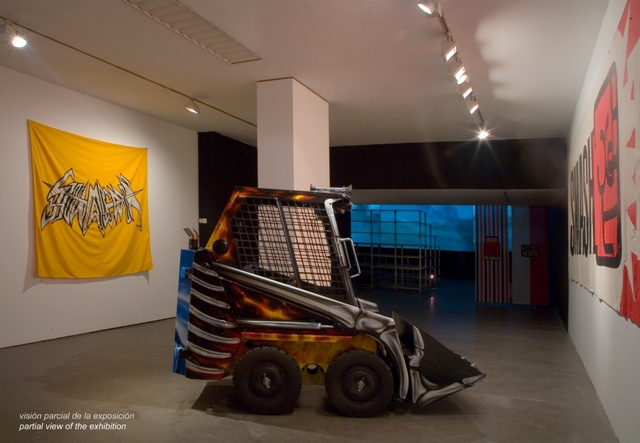
Salvador Díaz Gallery, Madrid 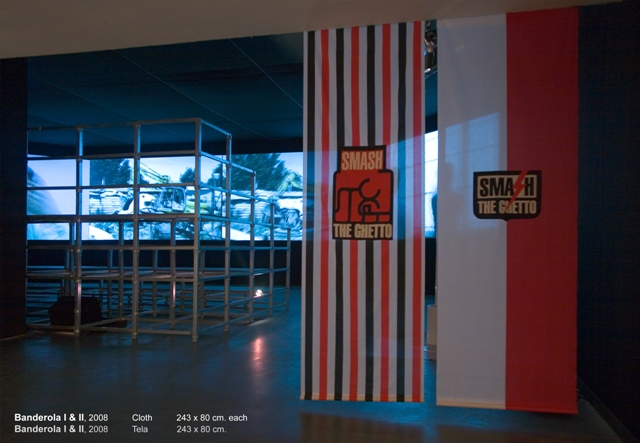
Salvador Díaz Gallery, Madrid 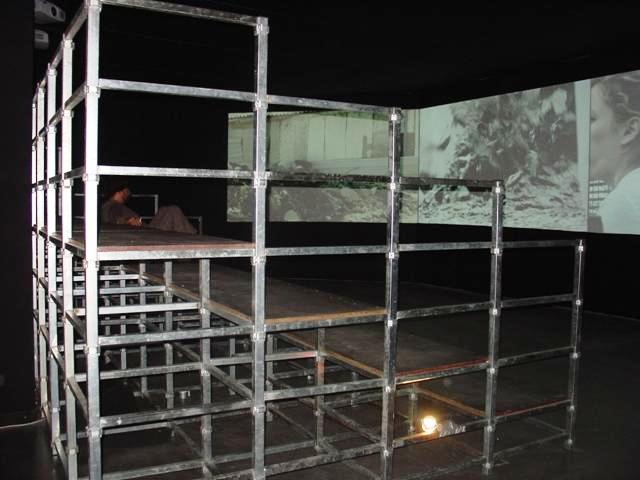
Salvador Díaz Gallery, Madrid 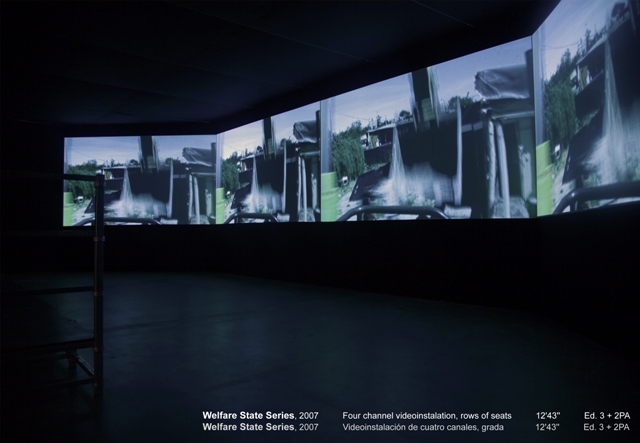
Salvador Díaz Gallery, Madrid 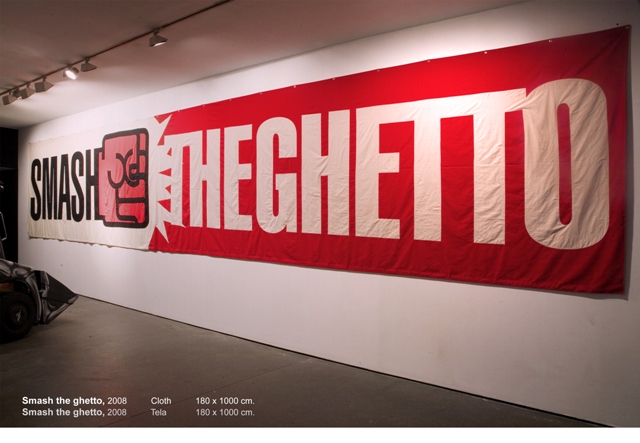
Salvador Díaz Gallery, Madrid 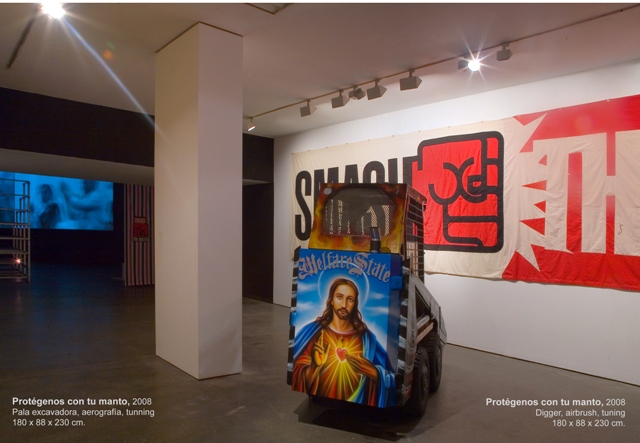
Salvador Díaz Gallery, Madrid 
Salvador Díaz Gallery, Madrid 
Salvador Díaz Gallery, Madrid 
Welfare State Series 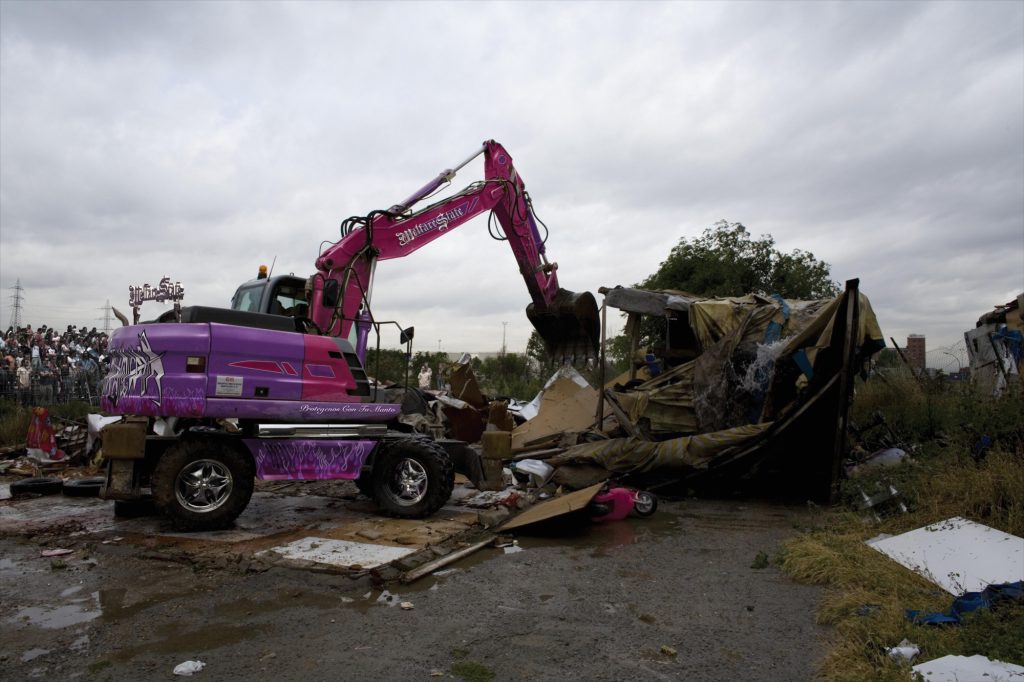
Welfare State Series 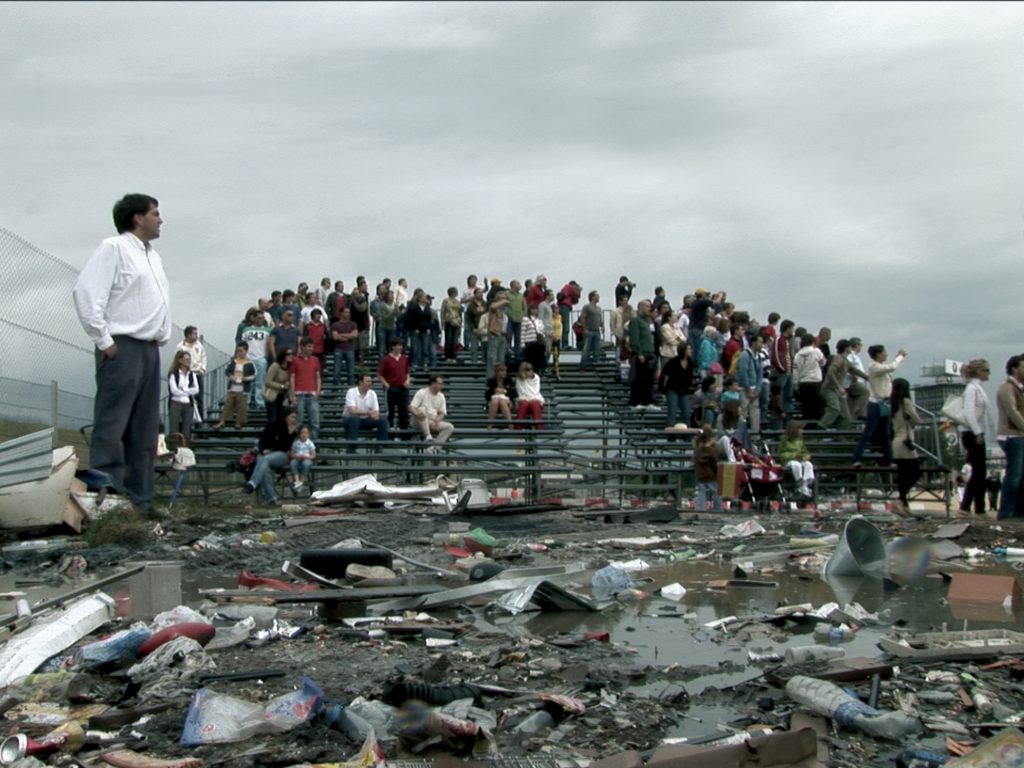
Welfare State Series 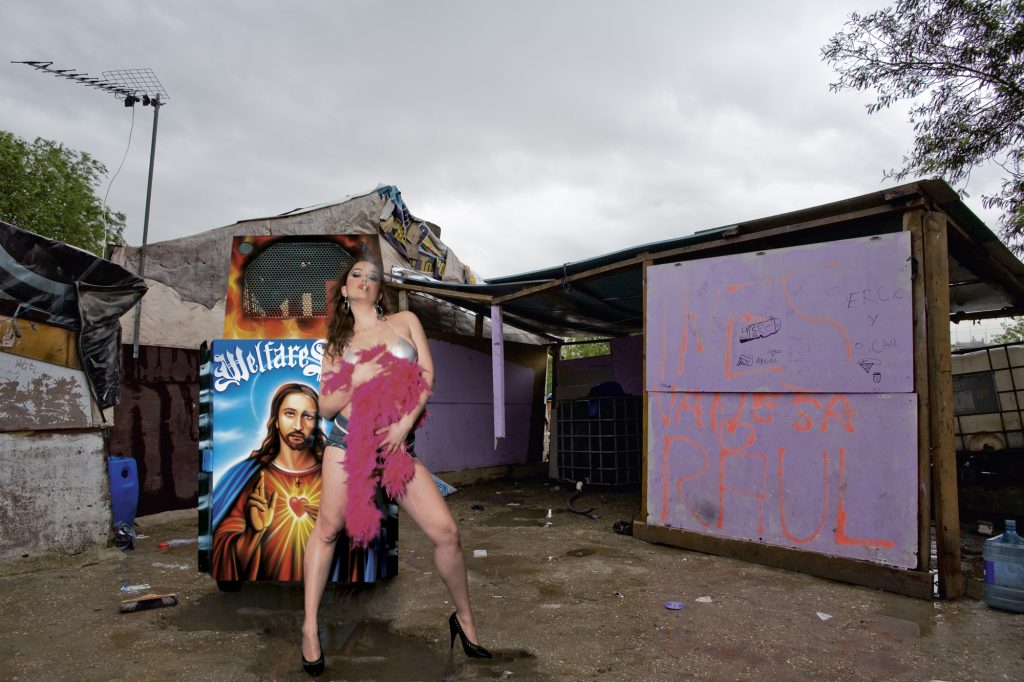
Tuning Girls (I) 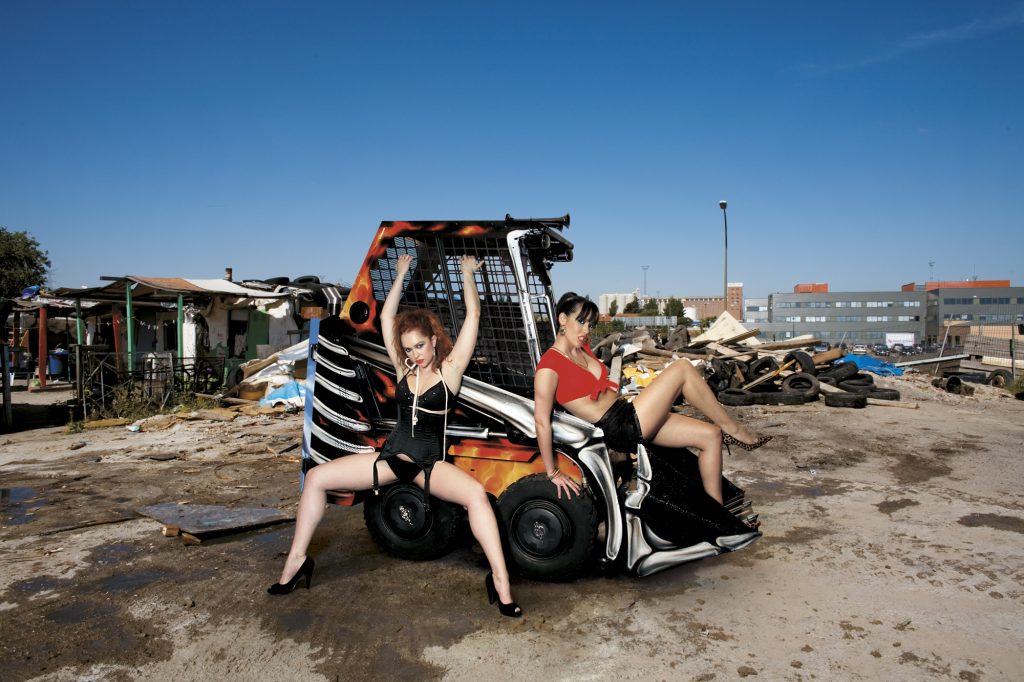
Tuning Girls (II) 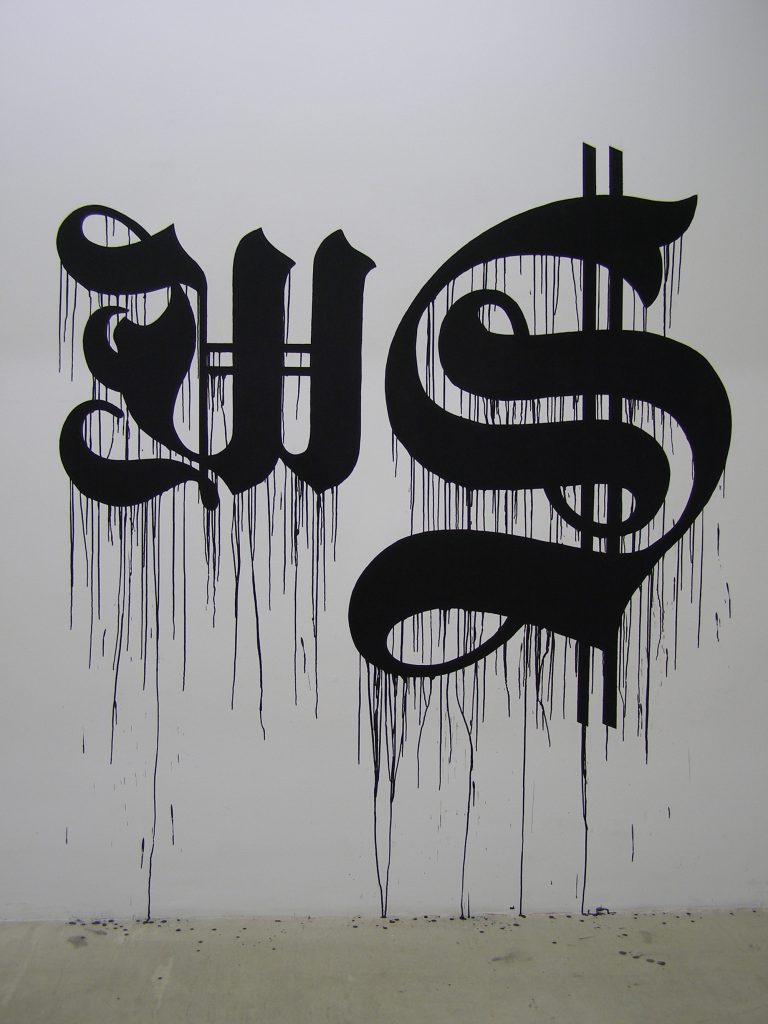
Welfare State Wallpainting 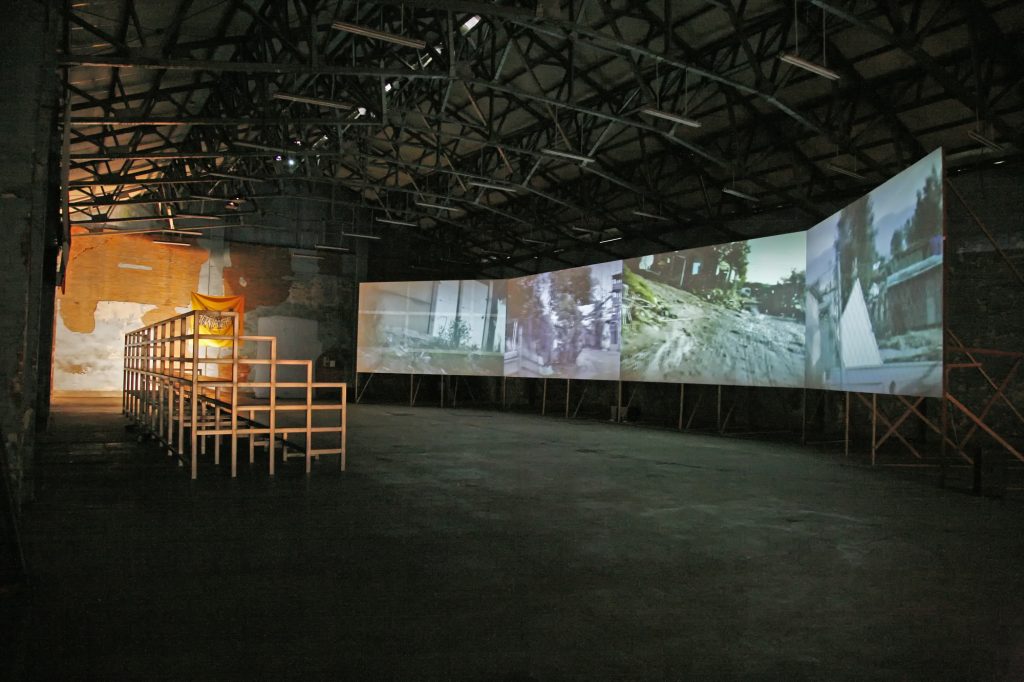
Taipei Biennial 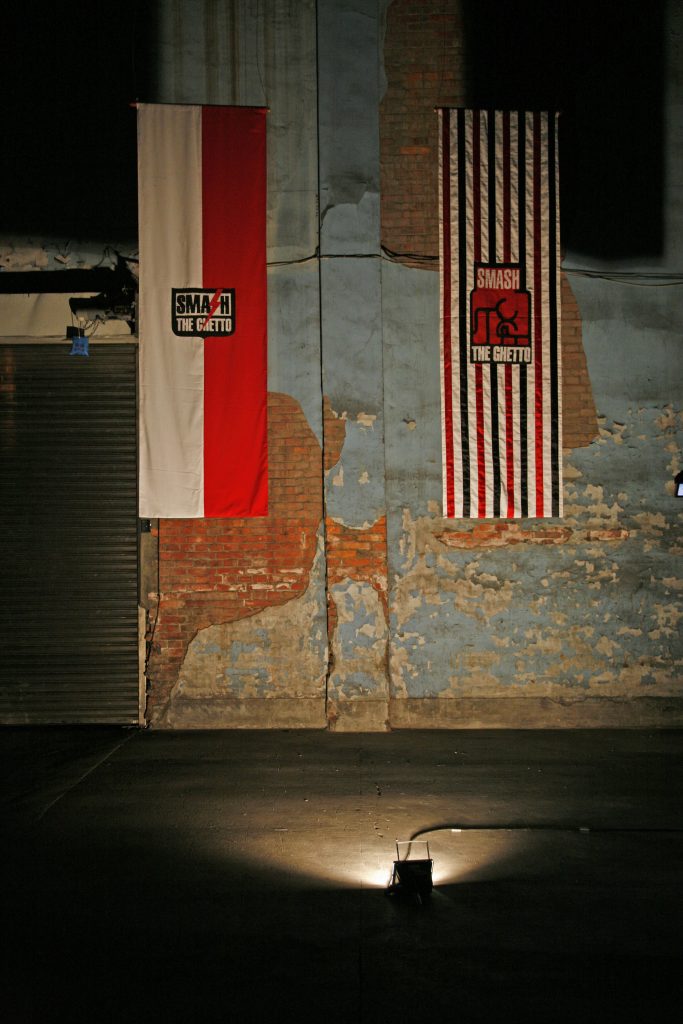
Taipei Biennial 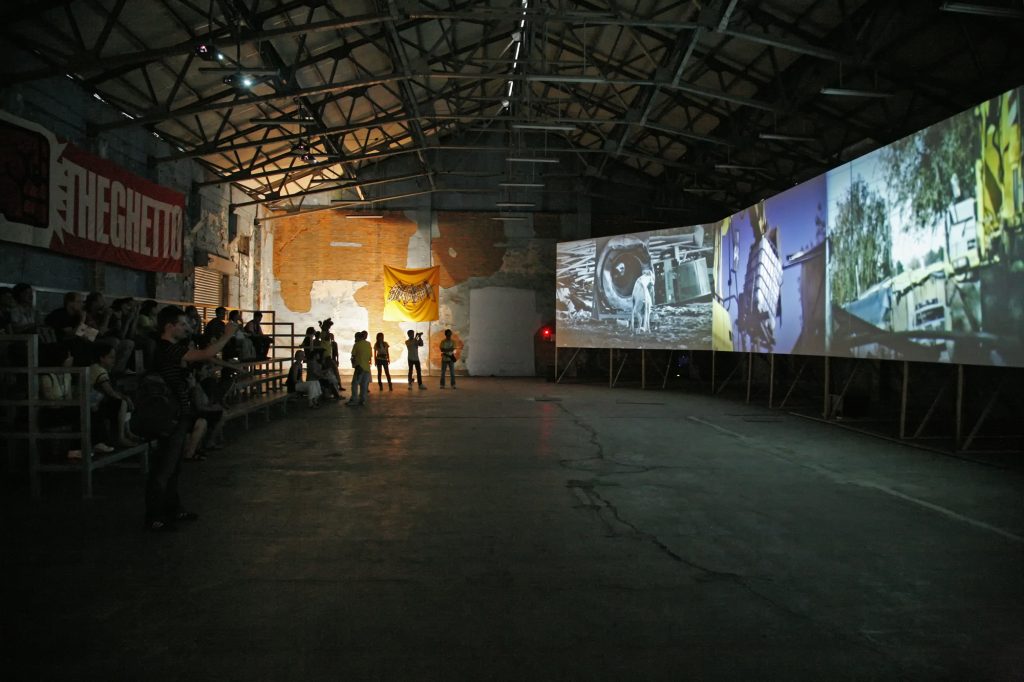
Taipei Biennial 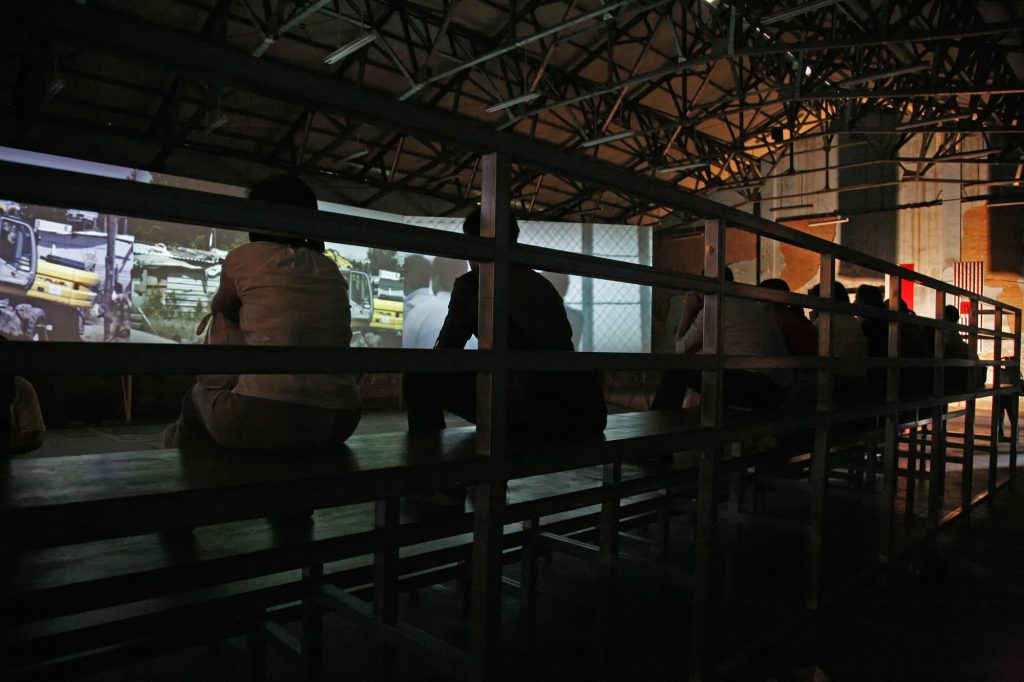
Taipei Biennial 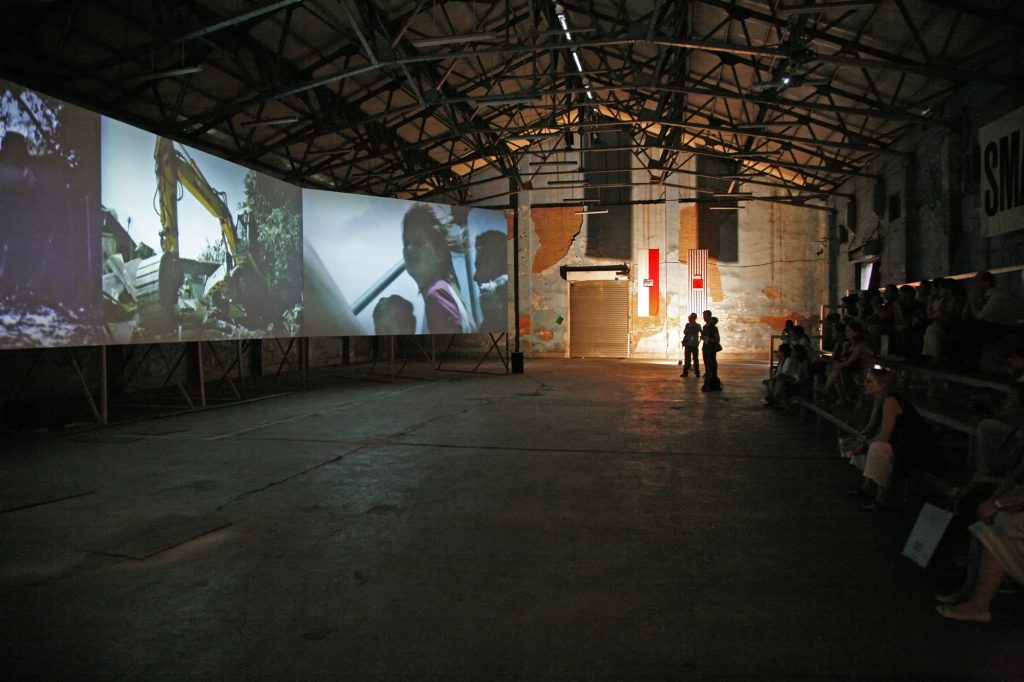
Taipei Biennial 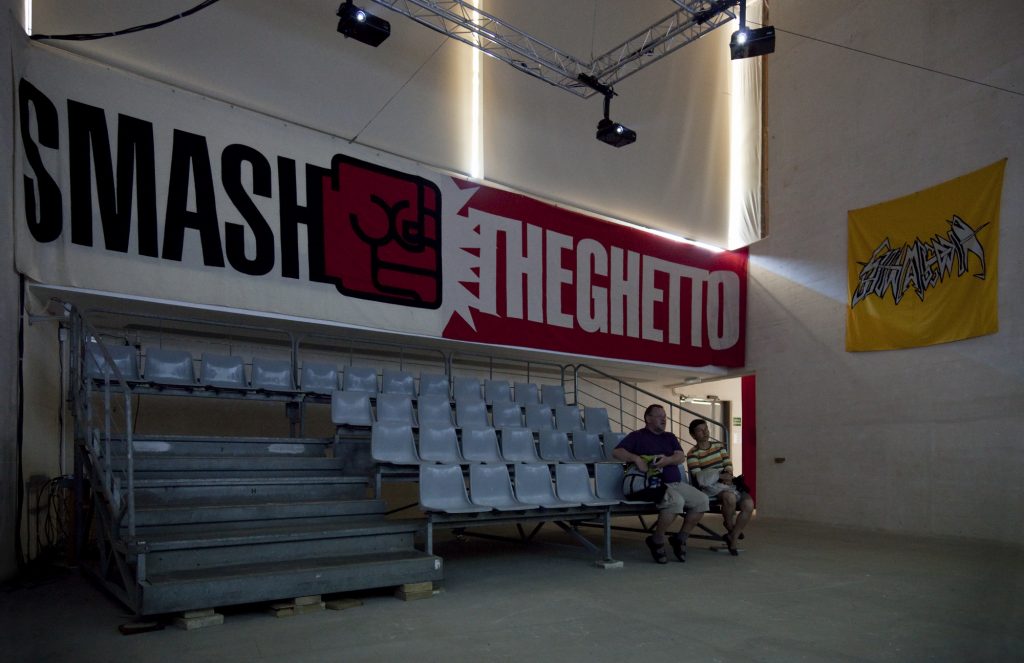
Fundació Pilar y Joan Miró a Palma 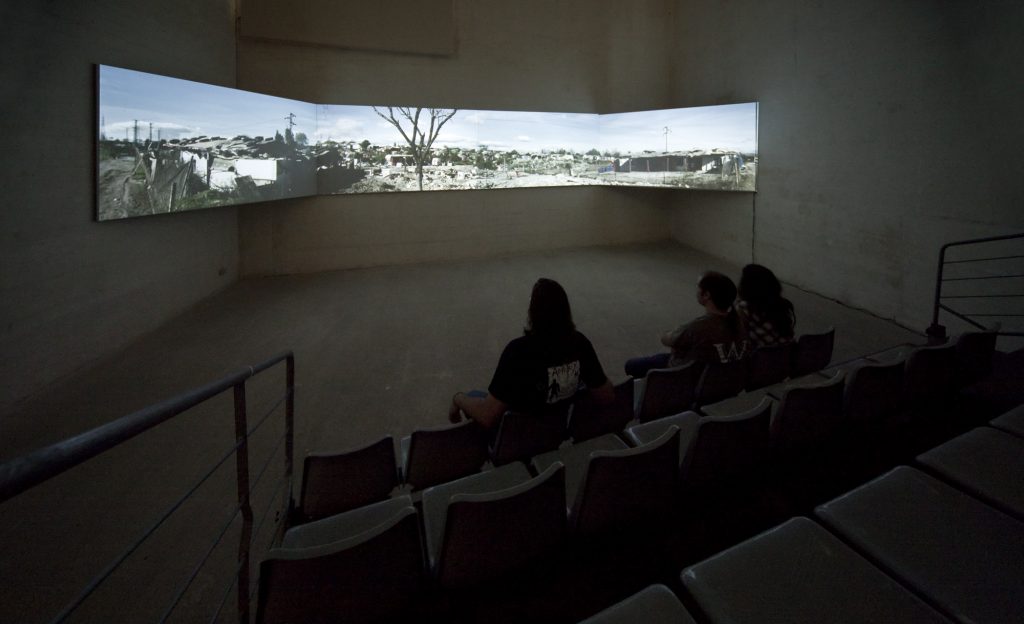
Fundació Pilar y Joan Miró a Palma 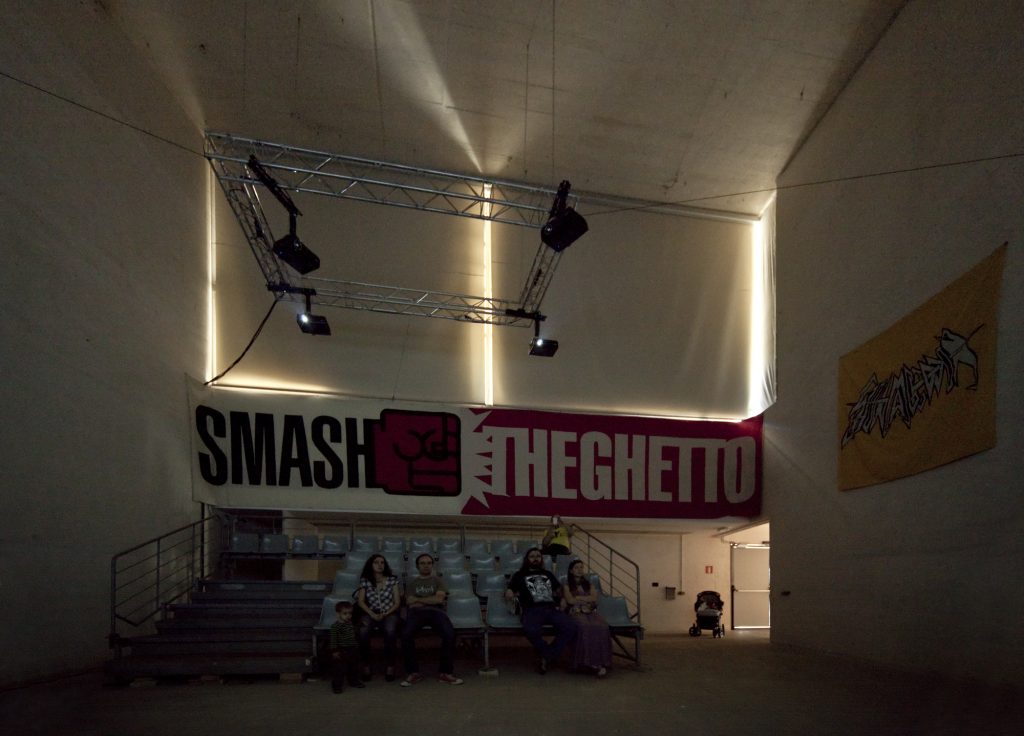
Fundació Pilar y Joan Miró a Palma 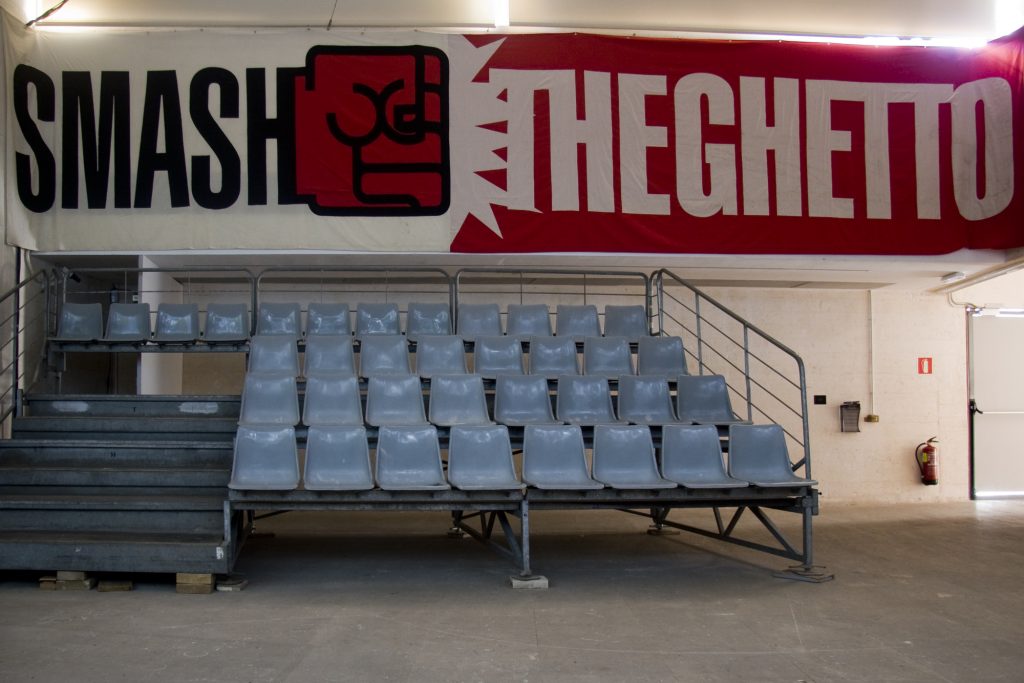
Fundació Pilar y Joan Miró a Palma 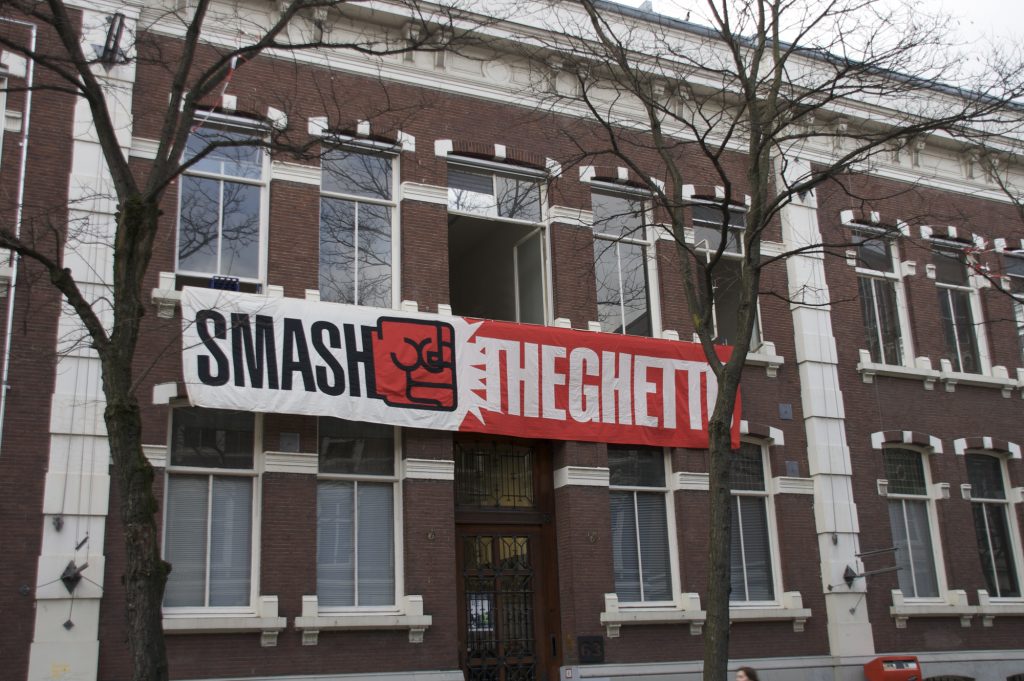
Roodkapje, Rotterdam 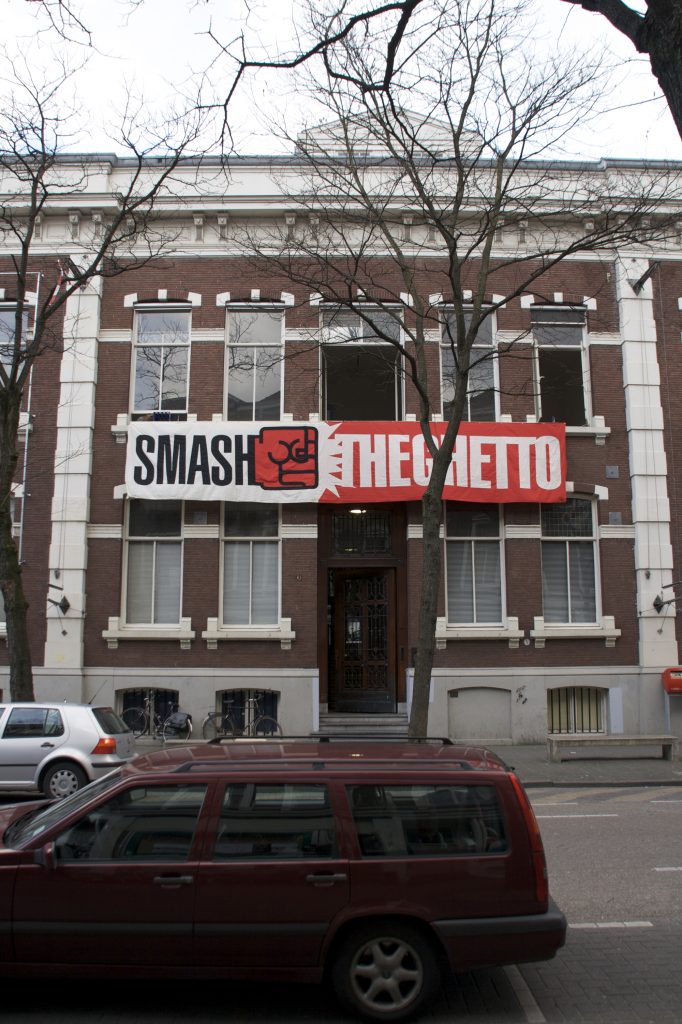
Roodkapje, Rotterdam 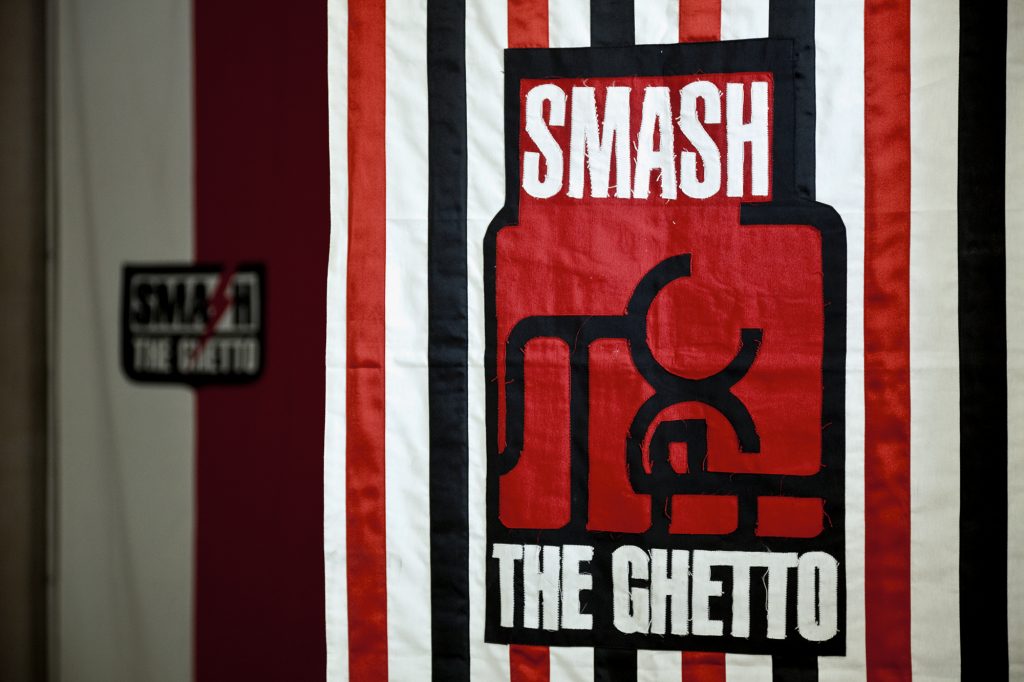
Fundació Pilar y Joan Miró a Palma 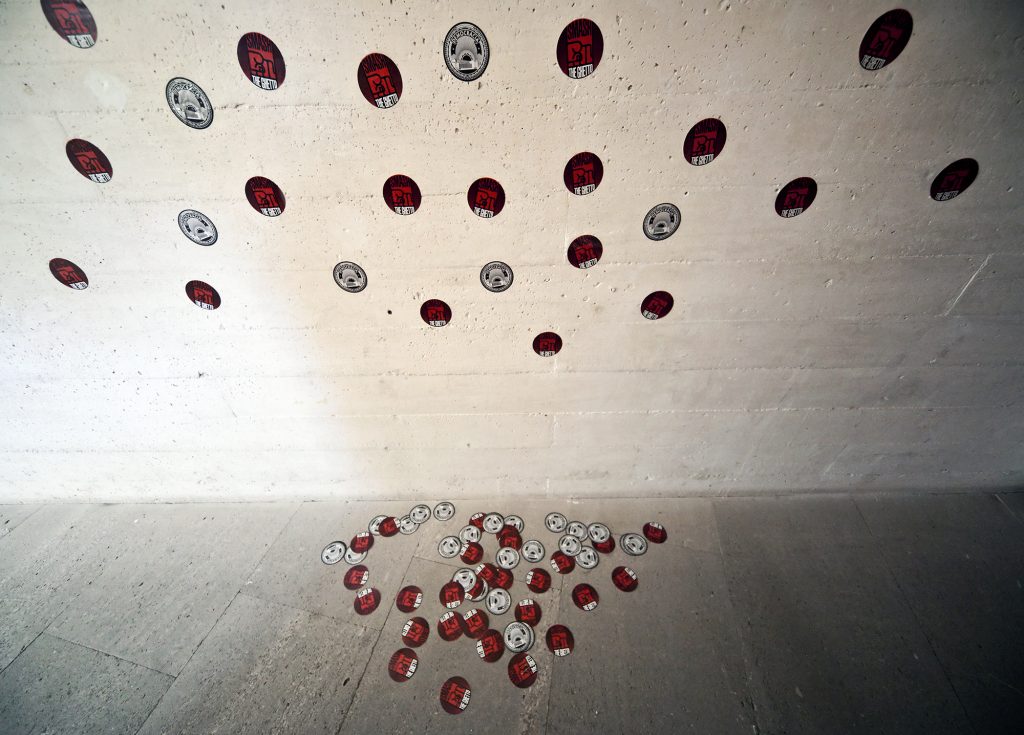
Fundació Pilar y Joan Miró a Palma 
Smash the Ghetto Logo 
Fundació Pilar y Joan Miró a Palma 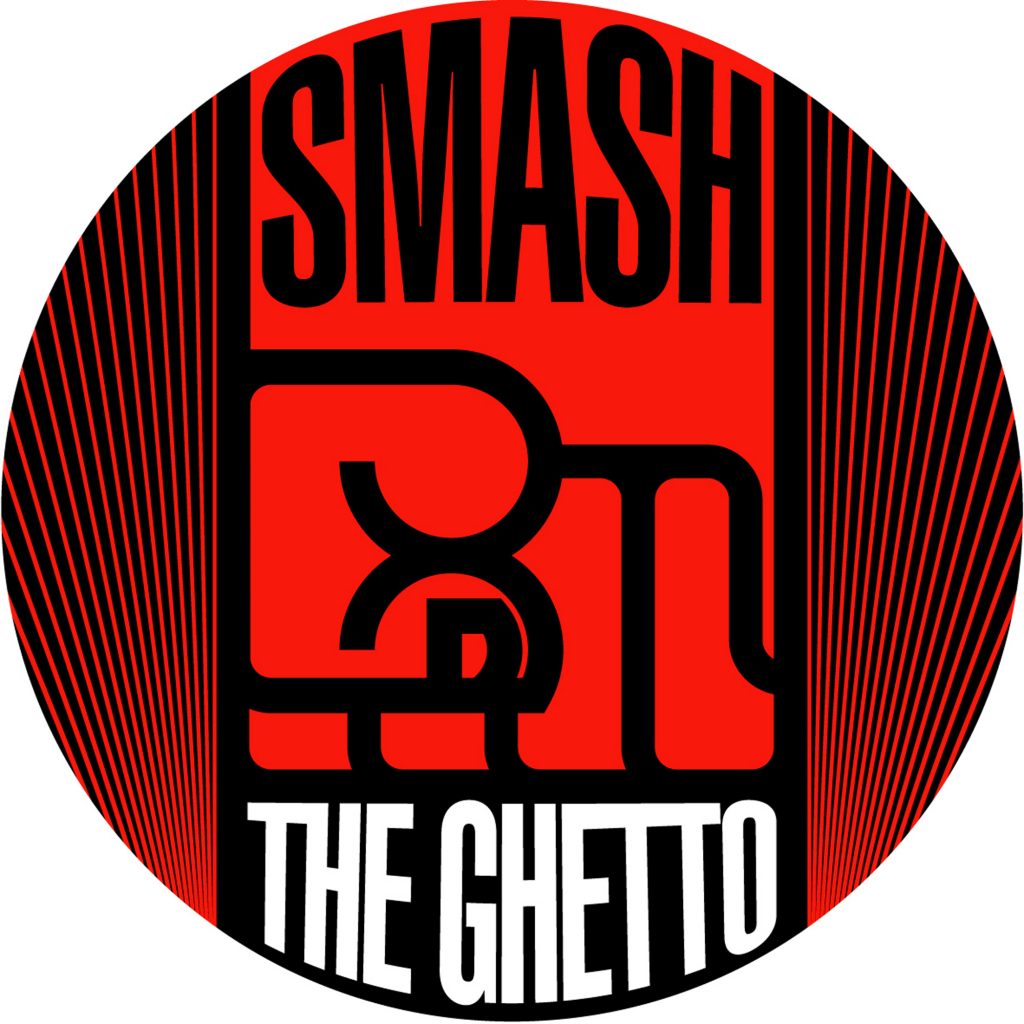
Smash the Ghetto Sticker 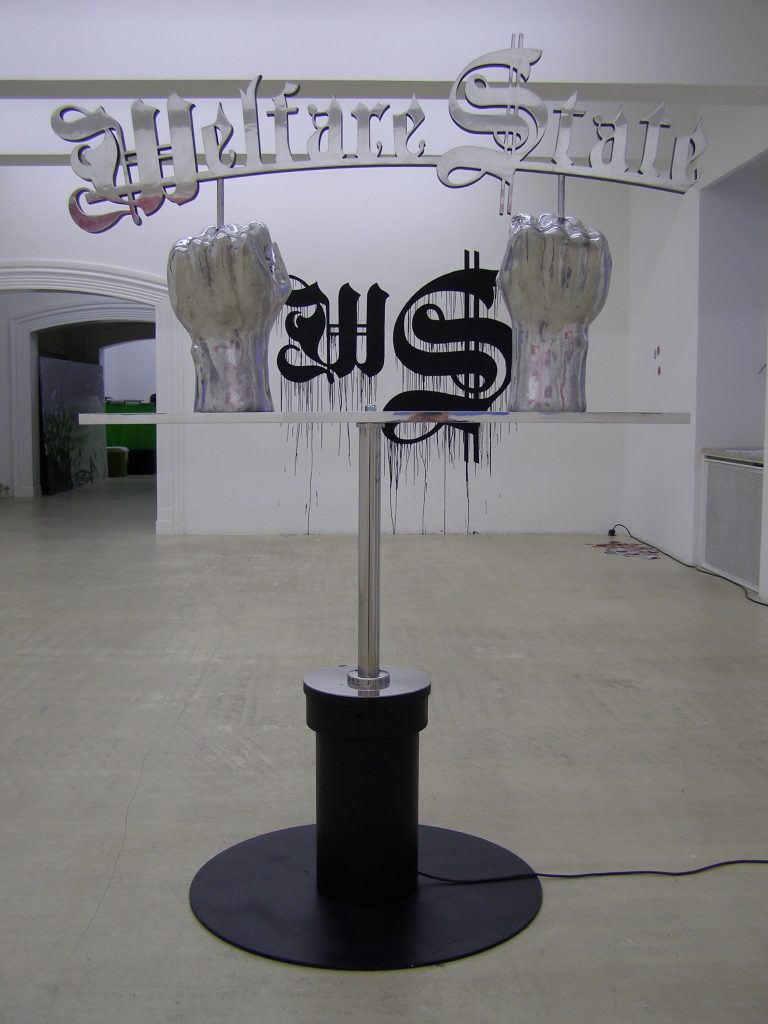
Caprice Horn Gallery, Berlín